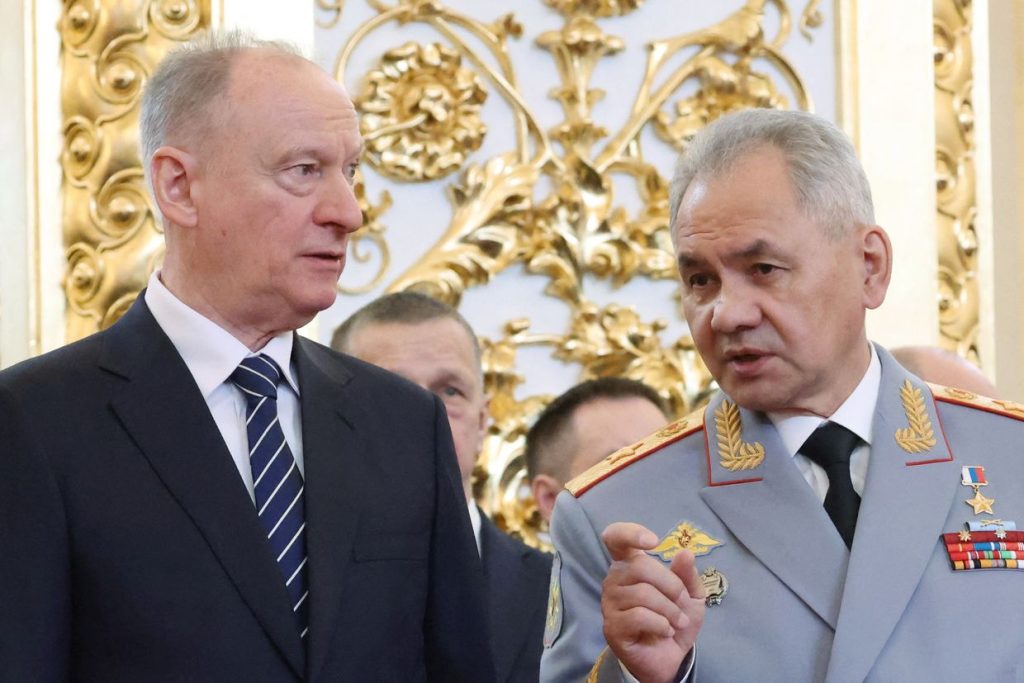Nikolai Patrushev, an advisor to Russian President Vladimir Putin, accused the West on Sept. 27 of trying to isolate Kaliningrad Oblast by disrupting transportation links between the exclave and mainland Russia. He claimed that Western nations are creating complications for cargo and passenger transit to the region through sanctions imposed since Russia’s invasion of Ukraine in February 2022. As a result, Patrushev stated that Moscow plans to shift the majority of road and rail cargo between Kaliningrad and mainland Russia to sea routes, as 80% of essential goods for the region cannot be transported by land. He also mentioned that Russia intends to establish two ship and rail routes by 2028.
Kaliningrad Oblast, a Russian exclave situated between Poland and Lithuania on the Baltic Sea, became part of Russian territory after the collapse of the Soviet Union. It is strategically important as the home of the Russian Baltic Fleet. Patrushev’s accusations of Western efforts to isolate the region highlight the tensions between Russia and the West, particularly in the aftermath of Russia’s military actions in Ukraine. By alleging interference with transportation links, Patrushev’s statements showcase the impact of international sanctions on Russia and its attempts to navigate such challenges.
In a separate incident on Sept. 26, the Kremlin emphasized that President Putin’s recent revisions to Russia’s nuclear weapons doctrine were meant to send a message to Western nations. Putin had announced that Russia could respond with nuclear weapons to any involvement in attacks on the country, indicating serious repercussions for such actions. This assertion from the Kremlin underscores the heightened tensions between Russia and the West, with nuclear capabilities being a significant factor in the ongoing geopolitical dynamics. The statement serves as a clear warning to Western countries regarding potential consequences of any aggression towards Russia.
The ongoing conflict and strained relations between Russia and the West have led to various retaliatory measures and statements on both sides. These developments have implications for global security and international relations, with the potential for escalation if tensions continue to rise. Patrushev’s accusations of Western attempts to isolate Kaliningrad Oblast and the Kremlin’s warnings about nuclear capabilities reflect the complex and volatile nature of the current geopolitical landscape. As both sides navigate these challenges, the need for diplomatic dialogue and conflict resolution becomes increasingly vital to prevent further escalation and promote stability in the region.
With Russia’s increased emphasis on sea routes for cargo transportation to Kaliningrad Oblast and Putin’s nuclear policy revisions serving as a deterrent to Western nations, the situation underscores the importance of strategic planning and diplomacy in international affairs. The shifting dynamics in response to geopolitical tensions highlight the need for careful navigation of such complex scenarios to prevent further conflict. As Russia and the West continue to navigate their differences, the implications of these actions and statements reverberate across the global geopolitical landscape, affecting not only the parties involved but also the broader international community. Finding a balance between assertiveness and dialogue remains crucial in managing these tensions effectively.
Overall, the accusations made by Patrushev regarding Western attempts to disrupt transportation links to Kaliningrad Oblast and the Kremlin’s warnings about nuclear capabilities convey the ongoing challenges and tensions in the relationship between Russia and the West. These developments underscore the need for diplomatic engagement, conflict resolution, and strategic planning to prevent further escalation and ensure stability in the region. As both sides navigate the complex geopolitical landscape, the implications of their actions extend beyond bilateral relations, impacting global security and international dynamics. The significance of dialogue and cooperation in addressing these challenges becomes increasingly apparent in working towards a peaceful and stable future for all involved.


